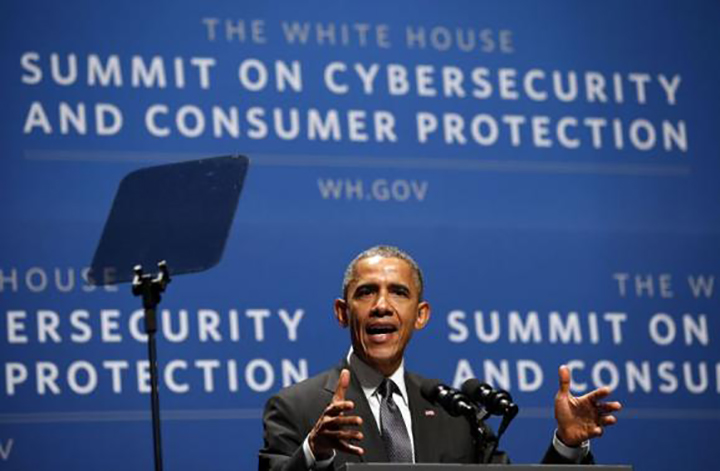
President Barack Obama visited the Cyber Security Summit at Stanford University on Friday, signing an executive order aiming to protect computer networks and data.
According to Elizabeth Weise of USA Today, the president told technology CEOs and students that cyber threats were one of the most important economic challenges the United States would face in the 21st century.
"It's one of the greatest paradoxes of our time, that the very technology that can be used to do great good can also be used to imperil us and do great harm," Obama said.
The president then spoke of the need for the government and privacy industry to work together and share information, according to USA Today.
"In all our work, we have to be sure we're protecting the privacy of the American people," Obama said.
Troy Wolverton of San Jose Mercury News explained how the president's executive order on cyber security would play out in the real world.
"The order will focus on promoting organizations that will serve as hubs for information about particular threats or for companies in specific regions," Wolverton wrote. "The order also promises to make it easier for private organizations to access classified information from the government about particular threats."
Wolverton added that the executive order "would promote the creation of 'information sharing and analysis organizations,' or ISAOs" with the purpose of serving as "central points to share information on particular threats and in specific regions." The order also hoped that voluntary standards would be developed by the private sector for compliance purposes.
According to Wolverton, the executive order would also give additional powers to both the government and private sector in terms of information sharing.
"The order gives the Department of Homeland Security and the new National Cybersecurity and Communications Integration Center the authority to share threat data with the information hubs," Wolverton wrote. "It would also give companies easier access to classified cybersecurity data."
Wolverton reported that the order also mentioned privacy civil liberties protections.
"The order calls on information hubs to abide by voluntary standards to protect citizens' data and privacy that include minimizing the amount of data collected and kept," Wolverton wrote.
USA Today reported that the president signed his executive order on the Stanford stage. Homeland Security adviser Lisa Monaco elaborated on why the issue of cyber security had to be addressed now.
"To put it bluntly, the cyberthreat is becoming more diverse, more sophisticated and more dangerous," Monaco said. "With as many 3 billion Internet users around the world, we have to get this right. The choices we make today will define the threat environment we face tomorrow."
According to USA Today, Monaco argued that government and the private sector must work together, noting that "neither of us can do this alone."
"This will only work if information flows two ways," she said.
However, USA Today reported that not everyone shared the idea that information sharing could take out cyber-attacks. Marc Rotenberg, president of the Electronic Privacy Information Center in New York, argued that there was little emphasis on "consumer protection."
"Industry and government would like to collect and exchange more user data. We think that is the wrong approach," Rotenberg said. "Key to security is to minimize data collection and adopt robust security measures."
Apple CEO Tim Cook, who spoke before the president, also placed consumer privacy as a priority. Wolverton reported that he took a veiled shot at critics within the Obama administration and law enforcement, arguing that Apple's encryption practices were part of its obligation in protecting customers' data.
"People have entrusted us with their most personal and precious information," Cook said. "We owe them nothing less than the best protection that we can possibly provide."
Wolverton noted that Cook's speech exposed some "underlying tensions" at the summit between Silicon Valley and the government. That's because many Silicon Valley companies are still mad at the government after it was revealed by Edward Snowden and others that the National Security Agency "infiltrated their own networks and products and undermined security standards."
















